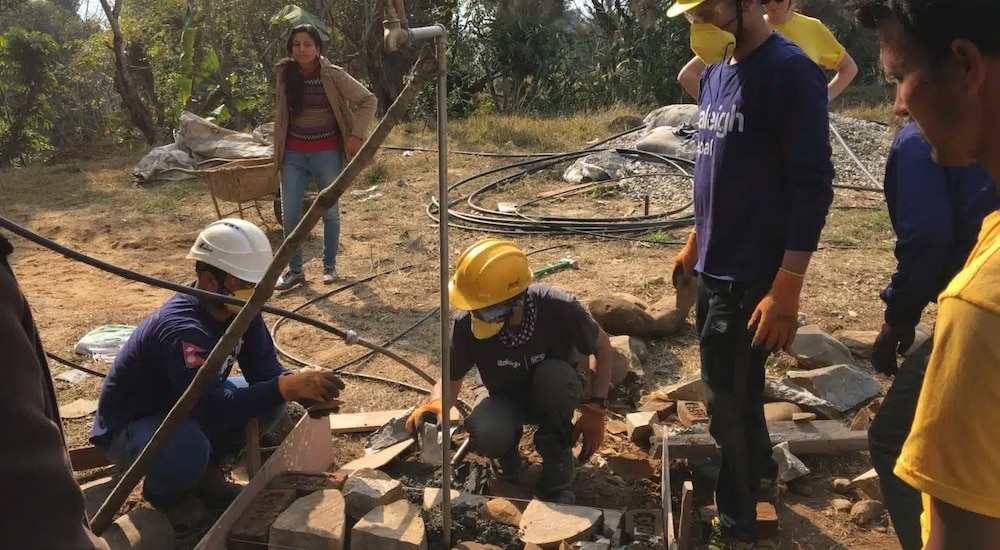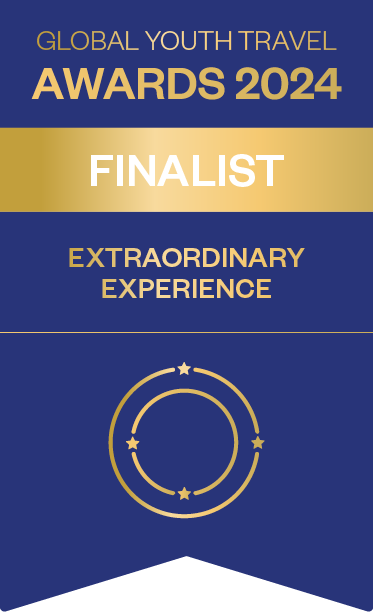An introduction to WASH (Water, Sanitation and Hygiene) projects
The Importance of WASH Initiatives: Improving Lives and Communities
While in Nepal, Raleigh Expedition volunteers are working on Water, Sanitation, and Hygiene (WASH) projects in the rural region of Gorkha. The projects involve the implementation and creation of both ‘hardware’ (physical structures) and ‘software’ (education of practices) in the communities where they are living. Nepal is the second richest country for water. Still, issues with accessibility, governance, infrastructure, topography, and socio-economics mean that many communities do not have access to safe or adequate water sources and have not been taught water management or sanitation practices. Young volunteers’ projects are significant for addressing these issues in marginalized areas.
Constructing the ‘hardware’ is the physically demanding part to implement. This involves digging, mixing cement, measuring, and building the structures needed to provide adequate and safe water to households in the community.
Volunteers will work with community members and the local NGO Goreto Gorkha on gravity water feed systems. These systems collect water at a source, manage the pressure to be evenly distributed, filter it, and deliver it to households via tap stands. These systems are challenging to build. Some are over 1500m long and are connected to over 75 tap stands!

The Expedition volunteer management team works with local NGO partner Goretto Gorkha to build a tap stand.
Explore our future expeditions now
The Need for Clean Water: Addressing Water Scarcity and Access
Access to a tap outside their house saves the community members hours walking to local streams to collect water. The saved time could be spent by going to school or improving their livelihoods. In addition, various WASH stations will be constructed. These simple stands can help the community to maintain hygiene by providing a clean area to wash their clothes, pots, hands etc. These should help stop the spread of disease and improve general sanitation.
Constructing the ‘hardware’ will only be effective by providing various WASH skills known as ‘software’. Volunteers will meet with community groups, including local schools, women’s groups, and youth groups, to train them on safe hygiene practices and water management methods. Some of the training shall include disease prevention, hand washing, and wastewater use. Goreto Gorkha will assist the volunteers in setting up and delivering these meetings as they are hugely important for using the hardware effectively.
Working closely with the community and Goreto Gorkha by implementing both the ‘hardware’ and ‘software’ means the Raleigh projects are inclusive, effective, and most importantly, sustainable!
Find out more about why you should volunteer with Raleigh International
Images and post by Jay Ham
Find out more information about our exciting up-and-coming expeditions.
Need more Expedition information?
Arrange a call with us at a time that works for you.
Hear from a Raleigh alumni about life on Expedition.
You’ll find everything in one place about our Expeditions.
Send us an enquiry with what you’d like to know more about.
Newsletter sign up
Updates on Expedition life from people out there living the dream!



